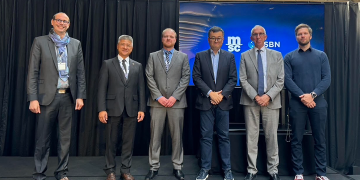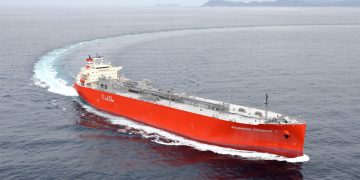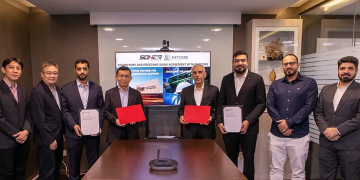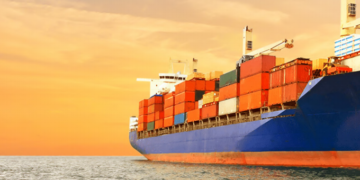–
The Maritime Labour Convention (MLC) came into forceinternationally on 20 August 2013 and, within two weeks ofport state control having commenced, the first vessel wasdetained for non-compliance.
During a port inspection of the Liberia-flagged offshore supplyvessel the Atlantic Carrier on 3 September, the DanishMaritime Authority observed that the crew had employmentcontracts that were not MLC compliant. The vessel wasdetained by port state control in Esbjerg for 24 hours whilstthe issues were corrected and she was then permitted toproceed to operations in the North Sea.
This is understood to be the first time that a vessel has beendelayed in port because of non-compliance with the MLC. It isa significant event for the global shipping industry because itdemonstrates that ratifying states are serious about enforcingthe MLC and the rights of seafarers to decent working andliving conditions at sea that it enshrines. As such, thecircumstances of the detention of the Atlantic Carrier bringthe standards and principles of the MLC into sharp focus.
The requirement that each crew member has an employmentcontract is only one aspect of seafarers’ rights under the MLC.”Shipowners” (as defined in the MLC) are also required toimplement measures relating to seafarers’ wages and hours ofwork, accommodation, food and catering, health protection,medical care, welfare and social security protection.
A shipowner also has to ensure that the vessel carries anon-board complaints procedure. This must enable seafarers toraise issues about MLC compliance including their ownemployment rights with the vessel’s master, without beingvictimised for having done so.If the seafarer’s complaint is not satisfactorily dealt with, hemay bring it to the attention of the next MLC port statecontrol inspector, who in turn has the power to detain thevessel in serious cases of non-compliance.
The MLC has received widespread ratification internationally.At the time of writing (13 September 2013), 51 states haveratified the MLC, and the vessels flying the flags of thosestates represent in excess of 75% of the world’s gross shippingtonnage.
Although 20 August of this year was the landmark date onwhich the MLC finally entered into force internationally, thereis an important point to note. This is that ratifying states have12 months from the date of ratification to enact the MLC intheir domestic law and commence enforcement via flag andport state control. There is therefore an important distinctionto be made between those 30 states that had ratified the MLCby 20 August 2012 and have been enforcing the MLC since 20August this year, and those states that ratified later and have12 months to enact and enforce. Denmark and Liberia wereamong the first states to ratify.
In principle, therefore, one would expect to see a phasedintroduction of the MLC by different flag states across theglobe over the coming months. Shipowners whose vessels flythe flag of a state that has recently ratified might be temptedto interpret this as meaning they have a grace period beforetheir vessels need to be MLC compliant.
However, the “no more favourable treatment” provisions ofthe MLC need to be borne in mind. In effect, these requireports of states where the MLC has already entered into forceto inspect all vessels for compliance, regardless of the flagthey fly, meaning that shipowners’ interests may be bestserved if they take steps to ensure their vessels are MLCcompliant now.
There will be variations in approach between flag stateauthorities but the UK provides a case in point. The UK did notratify the MLC until 7 August 2013 and in principle has until 7August 2014 to enact it in its domestic law and commenceenforcement. However, those parts of the MLC dealing withvessel survey and certification have already been enacted andare in force, and the remaining parts are expected to followsuit well in advance of 7 August 2014
Reflecting the point made about “no more favourabletreatment”, the Maritime & Coastguard Agency’s position isthat, as the MLC has already entered into force internationally,shipowners whose vessels are flying the UK flag should havetheir vessels inspected and obtain the necessarydocumentation constituting prima facie evidence ofcompliance for purposes of MLC port state control withoutdelay.
As the circumstances of the Atlantic Carrier and subsequentenforcement actions by port state control officers show,seafarers’ employment rights have entered into a new era and,if shipowners have not addressed the MLC and itsramifications to date, it is unlikely that they will be able toavoid doing so for much longer
Albert Levy & Nick Wilcox
Partner & Senior associate, London,INCE & CO
Above article has been initially published atINCE & CO webiste and is reproduced here with authors’ kind permission



























































